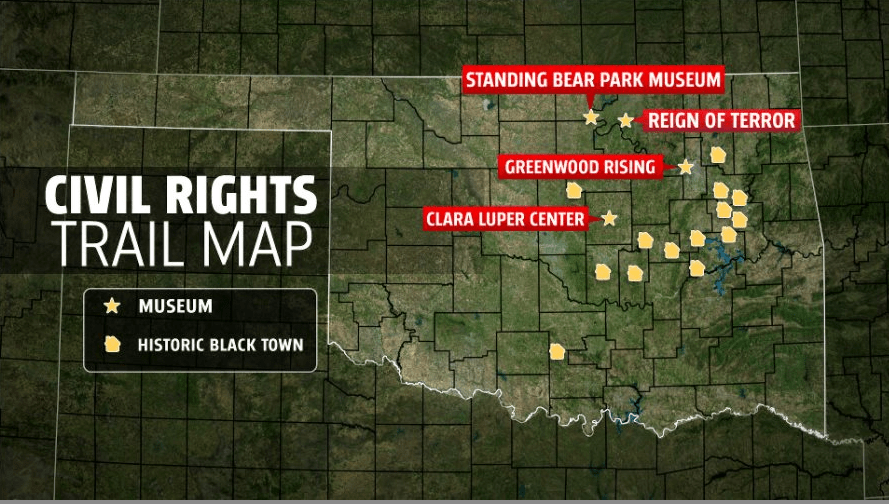Senator seeks funding for recently-passed Oklahoma Civil Rights Trail
OKLAHOMA CITY (KFOR) – An Oklahoma Senator says he’s taking the next steps toward the creation of the state’s Civil Rights Trail.
Last session, a measure authorizing the Oklahoma Civil Rights Trail, and the necessary revolving fund for grants related to its development, received unanimous approval in the Legislature and was signed into law by the governor.
Potential name change could be coming to Ponca City’s Pioneer Woman Museum
Ahead of the 2024 session, Sen. Kevin Matthews, D-Tulsa, has filed Senate Bill 1356 to provide $1.5 million for the revolving fund, which will ultimately include federal dollars as well as gifts and donations for development of the trail.
He said the project will preserve Oklahoma’s past, inspire future generations, and promote economic development throughout the state.
“The Civil Rights Trail will highlight our state’s Black towns, as well as Native American sites of historic significance,” Matthews said. “These locations are integral to Oklahoma’s identity and the role our citizens played in the U.S. Civil Rights movement. “The trail will shine a light on that history, the resilience and strength that define us, and inspire emerging entrepreneurs and leaders. SB 1356 is an investment that will benefit our entire state.”
Lawmaker proposes new agency to oversee economic development
Matthews said the Oklahoma Civil Rights Trail, as described in the 2023 legislation, will begin at Standing Bear Park, Museum and Education Center in Ponca City, then proceed to the site of the 1920s “Osage Reign of Terror,” in Fairfax.
The trail will continue through the state’s all-Black communities, including Boley, Brooksville, Clearview, Grayson, Langston, Lima, Red Bird, Rentiesville, Summit, Taft, Tatums, Tullahassee, and Vernon.
The trail then moves to Greenwood Rising and the Pathway to Hope, in Tulsa, before ending at the Clara Luper Center, to be built in Oklahoma City.
“The unanimous, bipartisan support for this vision with the initial bill in 2023 speaks volumes about its importance and benefits to Oklahoma,” Matthews said. “With this investment, we will be a step closer to making that vision a reality.”
The 2024 Regular Session begins Feb. 5.
For the latest news, weather, sports, and streaming video, head to KFOR.com Oklahoma City.


